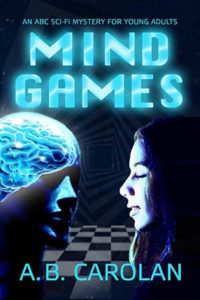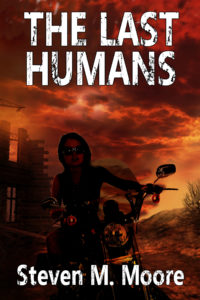Mini-Reviews of Books #43…
Wednesday, September 4th, 2019The Skeletons of Birkbury. Dana J. Febry, author. For a first novel, this is very entertaining…and it’s one of my favorite subgenres, British mysteries. I suppose it’s self-published—the copyright doesn’t even have a date on it. Come to think of it, I won’t put dates on books I review anymore. Unlike many people, I don’t neglect “evergreen books,” and this certainly falls into that class of books that are always current and entertaining. As for the myth about all those self-published books with editing errors, I’ve seen more in a Big Five ebook, so how this evergreen book was published is also irrelevant.
This is about a cold case that becomes hot as a young girl’s body is found when a tree topples over in a storm. You’ve seen pics recently of how the tree’s root system excavates an area around the tree when it goes over. I’m assuming that’s what happened in the story, but it’s not completely clear.
The plot is familiar in the sense that the detective here has a jerk as boss and some family problems he’s handling, so he struggles to concentrate on the cold case. The reader gets to follow the clues along with the detective and his assistant. Characters from the Birkbury area, good and bad alike, are skillfully drawn, complex, and cover a wide range of human behavior. There’s a bit of class tension too, which can always occur within Great Britain’s social structure.
This one has some meat to it—it’s not a cozy mystery. My only problem was that the ending was a wee bit unclear and rushed, but overall the novel is an interesting read. I’ll try to remember to purchase other books in the series.
Trilisk Ruins. Michael McCloskey, author. This is the case of an author giving away the first book in a series to get readers to buy the rest. Marketing gurus recommend this practice—I deplore it. The reasons are simple: (1) An author should get better with each succeeding book in a series, so maybe the last book is the best one to read first. (When that doesn’t happen, something’s wrong.) (2) Each book in a series should be an independent read. In other words, readers should be able to jump into a series at the end or the middle and not have to read the books in order.
I guess I got what I paid for, though. This book was free, and there’s something a bit off with this novel. Maybe the fault lies with my sensing that the writing style is a bit pedantic and academic as if the author were trying to impress. When I need to consult a dictionary, that observation always occurs. The characters are a bit wooden and stereotypical too—beautiful kick-ass female meets Rambo-style macho man so they can kick ass together and become romantically involved. I don’t mind that if the rest of the plot is good. This one is not that great.
Ruins from ancient civilizations are a common theme in sci-fi (I’ve even used that in some of my sci-fi stories), but as a plot device it’s all in how it’s handled. The author ruins things (pun intended) by making the novel a space opera that’s too long. The relic seekers are smugglers. In space opera, there’s usually an evil corporation or government too. In this case, it’s the UN Space Force, which is essentially that evil government—no black UN helicopters, though, just nasty starships, but the author is maybe appealing to that meme?
I’ll admit that the story captivated me for a while. It became very boring when the author went into excruciating detail about the Trilisk base the smugglers are exploring. How it all worked was never explained to my satisfaction either. Not a bad story, though, if you flip through the boring pages fast enough. I won’t be buying the next books in the series, though.
***

Comments are always welcome.
Mind Games. “I was fixated on one goal: determine who killed Ferdie and punish them. If I could find out how they killed him, all the better, but that one goal was essential.” Androids with ESP? What could go wrong? Find out as a young girl searches for her adopted father’s killer in A.B. Carolan’s new addition to the “ABC Sci-Fi Mysteries.” Available in print and ebook format on Amazon and in ebook format on Smashwords and all its affiliated retailers (iBooks, B&N, Kobo, etc.)
Around the world and to the stars! In libris libertas!

